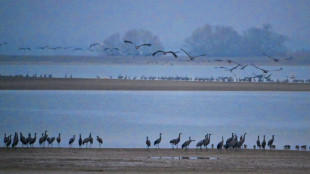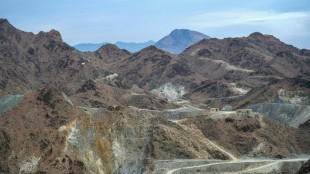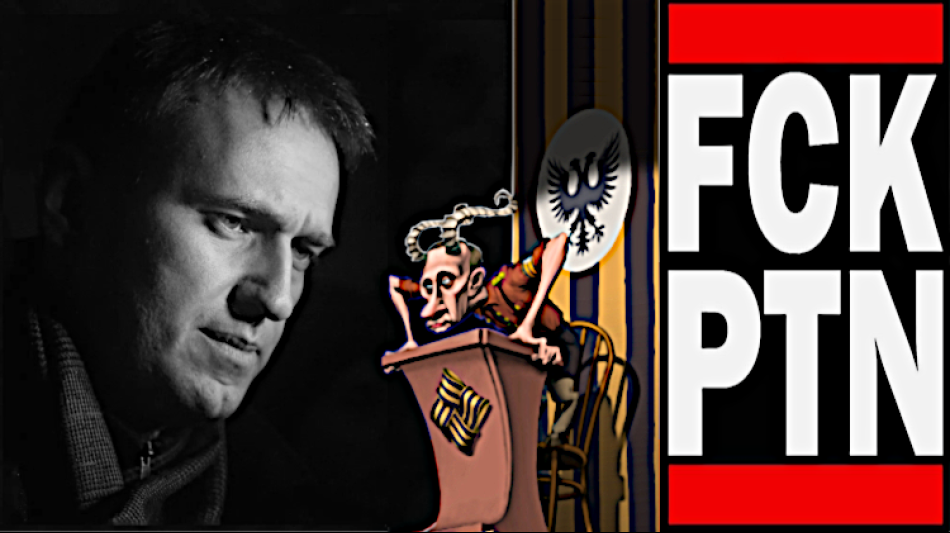-
 Trump says tariff 'pain' will be 'worth the price'
Trump says tariff 'pain' will be 'worth the price'
-
Lewandowski earns Barca win over Alaves to preserve title hopes

-
 Rybakina adds Sanguinetti to coaching staff
Rybakina adds Sanguinetti to coaching staff
-
England women's chief admits team out-played 'in every facet' after Ashes humiliation

-
 Global warming makes French reservoir a winter resort for migrating cranes
Global warming makes French reservoir a winter resort for migrating cranes
-
Kolo Muani double helps Juve to Empoli win, Inter set for key Milan derby

-
 Jones says Scotland must end Ireland losing streak to prove Six Nations worth
Jones says Scotland must end Ireland losing streak to prove Six Nations worth
-
Borthwick urges England to be a 'better team' against France in Six Nations

-
 Morata set for loan to Galatasaray from AC Milan
Morata set for loan to Galatasaray from AC Milan
-
Ajax loan English forward Chuba Akpom to Lille

-
 Man Utd sign Dorgu from Lecce
Man Utd sign Dorgu from Lecce
-
Netanyahu heads to US for pivotal Trump talks

-
 Fangio's Mercedes 1954 F1 car sold for record $53 mln at auction
Fangio's Mercedes 1954 F1 car sold for record $53 mln at auction
-
Residents near Japan sinkhole urged to evacuate

-
 China shrugs off new Trump tariffs but bruising trade war looms
China shrugs off new Trump tariffs but bruising trade war looms
-
Is it Beyonce's time? Music's A-listers ready for the Grammys

-
 Swiss champion Schmid wins Cadel Evans Road Race in scorching heat
Swiss champion Schmid wins Cadel Evans Road Race in scorching heat
-
Cash-keen Taliban betting on Afghanistan's mines

-
 Seeking light in dark times four years after Myanmar coup
Seeking light in dark times four years after Myanmar coup
-
Autos, electronics: What will Trump's tariffs impact?

-
 Three things we learned in the Six Nations
Three things we learned in the Six Nations
-
Russia and Ukraine trade blame for attack on Kursk school

-
 For world's poorest, fears for long-term setbacks after Trump aid cut
For world's poorest, fears for long-term setbacks after Trump aid cut
-
Chappell Roan: the splashy pop supernova

-
 Has Trump changed tack on Venezuela?
Has Trump changed tack on Venezuela?
-
Trump unveils sweeping US tariffs on Canada, Mexico, China

-
 McIlroy and Lowry charge at Pebble Beach but Straka leads
McIlroy and Lowry charge at Pebble Beach but Straka leads
-
Russian attacks on Ukraine kill 15

-
 Japan beat Britain in Davis Cup as Danish rally stops Serbia
Japan beat Britain in Davis Cup as Danish rally stops Serbia
-
US unveils sweeping tariffs on Canada, Mexico, China

-
 Kim holds on to lead at LPGA season-opener
Kim holds on to lead at LPGA season-opener
-
Thousands of Argentines march in defense of diversity

-
 Real Madrid fall at Espanyol as Atletico cut Liga gap
Real Madrid fall at Espanyol as Atletico cut Liga gap
-
Ex-Charlie Hebdo artist wins top prize at comics festival

-
 At least 56 killed as fighting grips Sudan's capital
At least 56 killed as fighting grips Sudan's capital
-
Russian attacks on Ukraine kill 14

-
 Netanyahu to begin talks on 2nd phase of Gaza truce
Netanyahu to begin talks on 2nd phase of Gaza truce
-
Doris proud as faltering champions Ireland beat England in Six Nations opener

-
 Swiss Britschgi wins European figure skating gold
Swiss Britschgi wins European figure skating gold
-
Trump tariff deadline looms, Canada told levies coming Tuesday

-
 Russian attacks on Ukraine kill 13
Russian attacks on Ukraine kill 13
-
US Democrats anoint new leader to take on Trump for 'working people'

-
 Atletico beat Mallorca to stay on Real Madrid's tail
Atletico beat Mallorca to stay on Real Madrid's tail
-
Ireland start Six Nations title defence with gritty England win

-
 Ireland start Six Nations title defence with England win
Ireland start Six Nations title defence with England win
-
Serbia protesters mark three months since deadly roof collapse

-
 Japan beat Britain in Davis Cup as Serbia lose to Denmark
Japan beat Britain in Davis Cup as Serbia lose to Denmark
-
Egypt's Sisi tells Trump world 'counting on' him for Middle East peace

-
 Pakistan separatist militants kill 18 paramilitaries in ambush
Pakistan separatist militants kill 18 paramilitaries in ambush
-
In-form Dembele hits hat-trick again as PSG thump Brest

| CMSC | -0.89% | 23.47 | $ | |
| RELX | -0.92% | 49.89 | $ | |
| NGG | -0.55% | 61.4 | $ | |
| GSK | -0.26% | 35.27 | $ | |
| AZN | -0.68% | 70.76 | $ | |
| SCS | -1.39% | 11.48 | $ | |
| RBGPF | 100% | 67.27 | $ | |
| BP | -1.77% | 31.06 | $ | |
| BTI | -0.1% | 39.64 | $ | |
| RIO | -0.83% | 60.41 | $ | |
| CMSD | -1.59% | 23.84 | $ | |
| VOD | -0.82% | 8.54 | $ | |
| BCC | -1.98% | 126.16 | $ | |
| RYCEF | -0.81% | 7.43 | $ | |
| BCE | -0.46% | 23.79 | $ | |
| JRI | -0.32% | 12.53 | $ |
The Roman Empire and its downfall?
The fall of the Roman Empire has fascinated historians, political analysts, and history enthusiasts for centuries. Once an unparalleled power that stretched across much of Europe, North Africa, and the Middle East, Rome eventually succumbed to a complicated web of internal weaknesses and external pressures. But what factors most decisively contributed to its downfall?
Overextension and Resource Strain
One prominent reason for the Empire’s decline lies in its vast territorial expanse. As the Empire expanded, maintaining military and administrative control over far-flung provinces became an immense challenge. Garrisoning remote frontiers and sustaining essential infrastructure, such as roads and aqueducts, placed enormous financial and logistical burdens on the imperial administration. Over time, these obligations led to heightened taxation and social unrest, eroding the Empire’s stability from within.
Political Instability and Weak Leadership
Another fundamental weakness was Rome’s inability to establish a consistent and resilient political structure. Frequent coups, civil wars, and assassinations destabilised the imperial government. Short-lived emperors were often more focused on consolidating power and eliminating rivals than enacting long-term reforms. This lack of continuity in governance engendered bureaucratic inefficiency and thwarted coherent policymaking, leaving Rome ill-prepared to address growing internal and external threats.
Economic Decline and Hyperinflation
Economic disruptions also played a pivotal role. As wars grew costlier, silver coinage was devalued repeatedly, leading to rampant inflation. Confidence in the currency eroded, triggering a cycle of price increases and diminishing trade. Many farmers abandoned their land, amplifying rural depopulation and further undermining agricultural productivity. Trade routes, once the arteries of Roman commerce, became perilous, stifling economic growth and rendering the state increasingly vulnerable.
The Rise of External Threats
Simultaneously, external forces took advantage of Rome’s weakening grip. Germanic tribes and other barbarian groups pressed against the Empire’s borders, sensing the growing fragility of Roman power. Although Rome had once managed to integrate or repel these incursions, mounting economic strain and military overextension hindered an effective response. Over time, repeated invasions culminated in the sacking of Rome by the Visigoths in 410 CE and the eventual deposition of the last Western Roman Emperor in 476 CE.
Social and Cultural Transformation
Lastly, shifting social and cultural dynamics played a role. Traditional Roman values of civic duty and loyalty to the state gradually gave way to localised loyalties and a reliance on mercenary forces. The rise of Christianity, while not the sole cause of the Empire’s decline, reoriented cultural and political power away from older Roman institutions and towards the Church, reducing the emperors’ influence and the old civic order’s authority.
Conclusion No single event or factor can wholly explain the collapse of the Roman Empire. Rather, it was the convergence of overextension, economic instability, political turmoil, and shifting social foundations that led to Rome’s ultimate disintegration. While debates on the precise causes continue, most historians agree that the empire’s downfall underscores the fragile balance between power, governance, and societal cohesion—an enduring lesson for any ambitious political system.

The great Cause: Biden-Harris 2024

UN: Tackling gender inequality crucial to climate crisis

Scientists: "Mini organs" from human stem cells

ICC demands arrest of Russian officers

Europe and its "big" goals for clean hydrogen

Putin and the murder of Alexei Navalny (47†)

Measles: UK authorities call for vaccinate children

EU: Von der Leyen withdraws controversial pesticide law

EU: Prison for "paedophilia manuals" and child abuse forgeries

EU: 90% cut of all greenhouse gas emissions by 2040?

How is climate change spreading disease?




